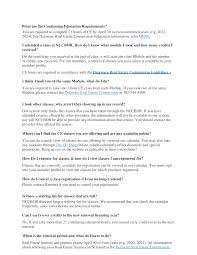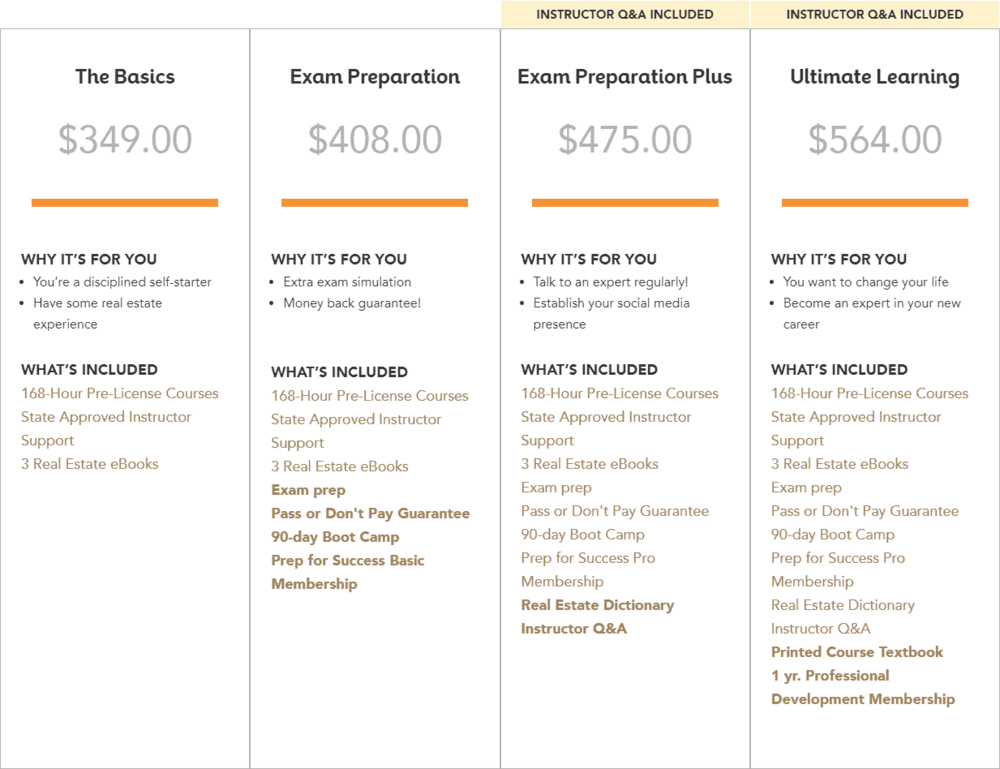
To get your real estate license in MA, there are several steps that you must take before you can start working in the industry. You need to finish an approved 40 hour pre-license course, pass the Massachusetts state licensing exam, and finally, you have to find a brokerage with which to work.
The Pre-License Course is required. Pass the Massachusetts Real Estate Exam.
You must complete a pre-license course of 40 hours at a board-approved school in order to become a real agent. A certificate from your school will be issued to you, which can be used as proof that you have completed your education. After you have completed the course, you will be able to apply to the Massachusetts Board of Real Estate for the state licensing exam.
Once you have submitted your information, the Massachusetts Board of Real Estate (MBRE) will send you a Candidat Handbook. This will include verification of educational qualifications and information necessary to set up an appointment to take their examination. A minimum of three endorsements will be required from candidates not related to yourself.

How to Apply for a License
After your Candidate Handbook is accepted and reviewed, you will need complete the application process at PSI. This company administers the MA real estate license exam. This will require you to submit all required documents and run a CORI background check. After they have reviewed your information, an approval letter will be sent to you allowing you to sign up for the test online or at a testing center in person.
Next, you will have to pay the license fees and set a date for your exam. You'll also need to obtain a surety bond in your name as an applicant.
PSI administers the real estate exam. They also oversee all license exams in MA. After running a background check, PSI will confirm that you have successfully completed the course and allow you to sign up online or in-person for the real estate license exam. After passing the exam, you will be able to go to a testing centre to get a photo for your license.
You'll have to pay a licensing fee of $103-$150 depending on how long you need your license to last. This is usually paid at exam centers. Once your exam has been completed, you will be able walk out with a real estate license.

How to locate a brokership with which you can practice
Once you have completed the pre-license course your broker will assist you in finding a brokerage to join. Your career will be supported by a team made up of professionals. You will be able learn from them, and they will answer any questions you may still have about the industry.
How to become a successful agent
The best way to be a successful real estate agent is to work hard, study hard, and be a good listener. This will allow you to be the best possible salesperson and broker you can be, while also building your business and earning commissions.
FAQ
How many times may I refinance my home mortgage?
It depends on whether you're refinancing with another lender, or using a broker to help you find a mortgage. Refinances are usually allowed once every five years in both cases.
What are some of the disadvantages of a fixed mortgage rate?
Fixed-rate loans have higher initial fees than adjustable-rate ones. Additionally, if you decide not to sell your home by the end of the term you could lose a substantial amount due to the difference between your sale price and the outstanding balance.
How do I know if my house is worth selling?
You may have an asking price too low because your home was not priced correctly. Your asking price should be well below the market value to ensure that there is enough interest in your property. For more information on current market conditions, download our Home Value Report.
How do I calculate my interest rate?
Market conditions influence the market and interest rates can change daily. The average interest rate during the last week was 4.39%. Divide the length of your loan by the interest rates to calculate your interest rate. If you finance $200,000 for 20 years at 5% annually, your interest rate would be 0.05 x 20 1.1%. This equals ten basis point.
Statistics
- Some experts hypothesize that rates will hit five percent by the second half of 2018, but there has been no official confirmation one way or the other. (fortunebuilders.com)
- It's possible to get approved for an FHA loan with a credit score as low as 580 and a down payment of 3.5% or a credit score as low as 500 and a 10% down payment.5 Specialty mortgage loans are loans that don't fit into the conventional or FHA loan categories. (investopedia.com)
- When it came to buying a home in 2015, experts predicted that mortgage rates would surpass five percent, yet interest rates remained below four percent. (fortunebuilders.com)
- Based on your credit scores and other financial details, your lender offers you a 3.5% interest rate on loan. (investopedia.com)
- The FHA sets its desirable debt-to-income ratio at 43%. (fortunebuilders.com)
External Links
How To
How to manage a rental property
Although renting your home is a great way of making extra money, there are many things you should consider before you make a decision. We'll help you understand what to look for when renting out your home.
If you're considering renting out your home, here's everything you need to know to start.
-
What is the first thing I should do? Consider your finances before you decide whether to rent out your house. If you have debts, such as credit card bills or mortgage payments, you may not be able to afford to pay someone else to live in your home while you're away. Your budget should be reviewed - you may not have enough money to cover your monthly expenses like rent, utilities, insurance, and so on. ), it might not be worth it.
-
How much does it cost for me to rent my house? Many factors go into calculating the amount you could charge for letting your home. These include things like location, size, features, condition, and even the season. It's important to remember that prices vary depending on where you live, so don't expect to get the same rate everywhere. Rightmove estimates that the market average for renting a 1-bedroom flat in London costs around PS1,400 per monthly. This means that if you rent out your entire home, you'd earn around PS2,800 a year. That's not bad, but if you only wanted to let part of your home, you could probably earn significantly less.
-
Is it worth it? You should always take risks when doing something new. But, if it increases your income, why not try it? You need to be clear about what you're signing before you do anything. Your home will be your own private sanctuary. However, renting your home means you won't have to spend as much time with your family. Before you sign up, make sure to thoroughly consider all of these points.
-
Is there any benefit? So now that you know how much it costs to rent out your home and you're confident that it's worth it, you'll need to think about the advantages. You have many options to rent your house: you can pay off debt, invest in vacations, save for rainy days, or simply relax from the hustle and bustle of your daily life. You will likely find it more enjoyable than working every day. You could make renting a part-time job if you plan ahead.
-
How do you find tenants? Once you decide that you want to rent out your property, it is important to properly market it. Make sure to list your property online via websites such as Rightmove. Once you receive contact from potential tenants, it's time to set up an interview. This will help you assess their suitability and ensure they're financially stable enough to move into your home.
-
What can I do to make sure my home is protected? If you're worried about leaving your home empty, you'll need to ensure you're fully protected against damage, theft, or fire. You will need to insure the home through your landlord, or directly with an insurer. Your landlord may require that you add them to your additional insured. This will cover any damage to your home while you are not there. This does not apply if you are living overseas or if your landlord hasn't been registered with UK insurers. You will need to register with an International Insurer in this instance.
-
If you work outside of your home, it might seem like you don't have enough money to spend hours looking for tenants. But it's crucial that you put your best foot forward when advertising your property. You should create a professional-looking website and post ads online, including in local newspapers and magazines. You'll also need to prepare a thorough application form and provide references. Some prefer to do it all themselves. Others hire agents to help with the paperwork. Interviews will require you to be prepared for any questions.
-
What do I do when I find my tenant. If you have a current lease in place you'll need inform your tenant about changes, such moving dates. Otherwise, you can negotiate the length of stay, deposit, and other details. Keep in mind that you will still be responsible for paying utilities and other costs once your tenancy ends.
-
How do I collect my rent? When the time comes for you to collect the rent you need to make sure that your tenant has been paying their rent. If your tenant has not paid, you will need to remind them. Any outstanding rents can be deducted from future rents, before you send them a final bill. If you're struggling to get hold of your tenant, you can always call the police. They won't normally evict someone unless there's been a breach of contract, but they can issue a warrant if necessary.
-
How can I avoid problems? It can be very lucrative to rent out your home, but it is important to protect yourself. Make sure you have carbon monoxide detectors installed and security cameras installed. It is important to check that your neighbors allow you leave your property unlocked at nights and that you have sufficient insurance. Finally, you should never let strangers into your house, even if they say they're moving in next door.